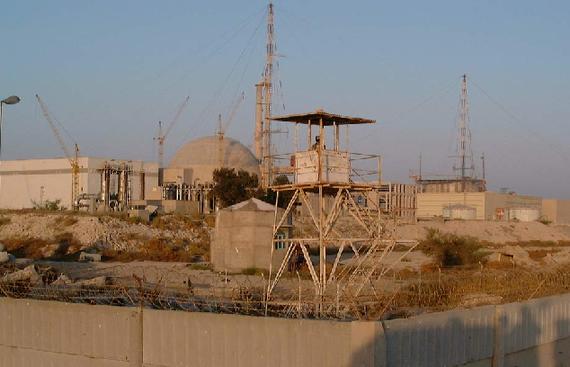Will the progress in Iran nuclear issue sustainable?
- By Jin Liangxiang
 0 Comment(s)
0 Comment(s) Print
Print E-mail China.org.cn, December 21, 2013
E-mail China.org.cn, December 21, 2013
The interim agreement on the Iran nuclear issue reached on Nov. 24 is neither a historical breakthrough nor a historical mistake. It is just modest progress. Despite optimism as a result of the deal, the progress is not necessarily sustainable, judging by the difficulties ahead.
|
|
|
A view from the Bushehr Nuclear Power Plant in Iran. [IAEA/Paolo Contri] |
A breakthrough means substantial progress in the sticking points of a specific standoff. It also implies that the follow up process should be easier than the previous process. Judging by these, the Nov. 24 deal is not a breakthrough. There are at least two sticking points of the Iran nuclear issue, but neither of them has been meaningfully addressed.
The first one is what kind of uranium enrichment capability Iran has for its nuclear program. Prior to signing the agreement, Iran requested that its rights for peaceful enrichment should be recognized and clearly worded in the deal, which was rejected. The West, the United States in particular, looks at the Iran nuclear issue mainly in terms of security, and the lower the level of Iran's uranium enrichment is, the more secure the United States will feel.
Though the agreement implicitly recognizes Iran's rights for uranium enrichment at 5 percent purity by requesting Iran to freeze all the enrichment activities beyond this limit, it does not mean that this will be the West or Iran's final position. The division and the problem still remain.
The second point is whether the sanctions on Iran's oil and financial sectors can be removed. The West agreed to remove sanctions on some of Iran's overseas assets, worth 7 billion U.S. dollars, and on Iran's trade in aircraft parts and metals, but this is insignificant for Iran, which is a nation with a population of 75 million.
What affect Iran seriously are sanctions on Iran's oil and financial sectors. The oil sanctions reduced Iran's oil exports from 2.5 million barrels per day to 1 million barrels per day in 2012. The sanctions on Iran's financial sector even resulted in the collapse of Iran's international trade by separating Iran from the international market. Or, to put it another way, if sanctions in these two areas are not removed, Iranian hardliners will think that Iran has not adequately rewarded.
Politicians can always politicize international issues. This is also the case for the Iran nuclear issue. By boasting that it is a breakthrough, the politicians involved intend to enhance their legitimacy at home. By disparaging it, Benjamin Netanyahu is actually motivated by his strong disfavor of any progress not only in the nuclear issue but also in U.S.-Iran relations.






